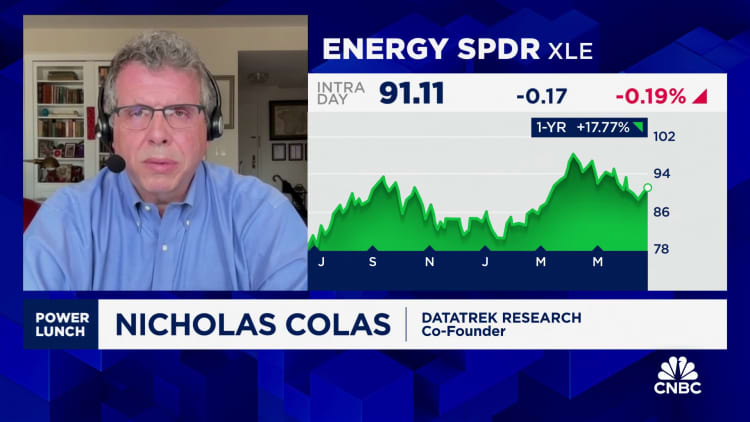- Oil prices fell Tuesday, but traders are hoping U.S. inventory will show that fuel demand is picking up.
- Expectations that the oil market will tighten and escalating tensions in the Middle East have provided bullish momentum recently.
Crude oil futures rose Wednesday as investors wait for the latest U.S. inventory data for indications of how gasoline demand is holding up as summer.
Oil prices pulled back Tuesday as the recent rally paused, but West Texas Intermediate and Brent are ahead 5.9% and 4.9% for the month as analysts expect summer fuel demand to pick up after a soft start to the season.
Here are today’s energy prices:
- West Texas Intermediate August contract: $81.53 per barrel, up 70 cents, or 0.87%. Year to date, U.S. oil has gained 13.8%.
- Brent August contract: $85.66 per barrel, up 65 cents, or 0.76%. Year to date, the global benchmark is ahead 11.2%.
- RBOB Gasoline July contract: $2.53 per gallon, up 0.76%. Year to date, gasoline has gained 20.5%.
- Natural Gas July contract: $2.71 per gallon, down 1.74%. Year to date, gas is ahead 7.7%.
Traders are waiting for confirmation that demand is firming from the latest U.S. oil and gasoline inventory data, which the Department of Energy will release at 10:30 am.
“The ubiquitous view is that demand will increase during the summer and with OPEC+ cuts fully in place until October global and OECD stocks ought to deplete,” John Evans, analyst at oil broker PVM, said in a Wednesday note.
“Thus, convincing stock draws in the US would go a long way to bolster this optimism,” Evans said.
Analysts are expecting that U.S .oil and gas inventories fell by 2.9 million barrels and 1 million barrels, respectively, last week, according to a Reuters poll.
Traders are also monitoring the situation on the Israel-Lebanon border. Israel and the Iran-backed militia group Hezbollah have threatened war recently, after trading fire across the border for months.
There are fears an Israeli offensive in Lebanon could trigger a direct confrontation with OPEC member Iran, potentially jeopardizing crude oil supplies.











